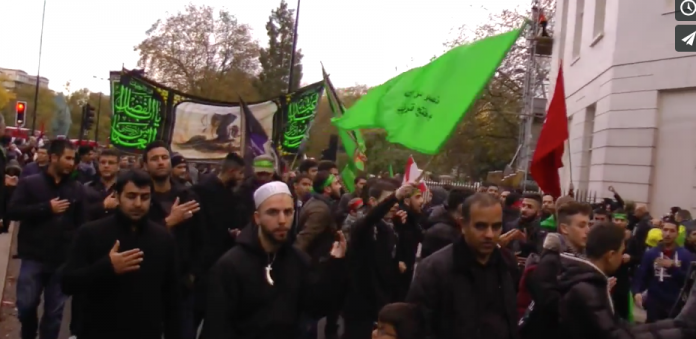Kay Ayed joins the Ashura procession to find out what the day means to Shia and Sunni Muslims.
Muslims from East London joined over ten thousand others to take part in the annual Ashura procession at Marble Arch on November 4th. The East London groups represented included the Sakina Trust from Walthamstow and the Imamia Mission from Forest Gate.
Given rising tensions between Shia and Sunni Muslims associated with the activities of the Sunni jihadist group ISIL (formerly known as ISIS) in Syria and Iraq, I attended the procession to ask people why Ashura was so important to them.
The differences between Shia and Sunni Muslims are particularly pronounced during Ashura, because while Shia Muslims use the day to mourn the death of Hussayn, Sunni Muslims do not, and instead celebrate it as the day that the prophet Moses fasted to give thanks for the Israelites being saved from the Egyptians.
Husayn was killed at the Battle of Karbala in 680, and was the son of Ali, cousin of the prophet Muhammad. While Shia Muslims believe that Ali should have been the rightful heir to Muhammed, Sunni Muslims chose Abu Bakr as their first Caliph instead.
I joined the procession in an attempt to let those taking part explain the significance, and the situation.
Everyone I spoke to was clear about why they wanted to mourn the death of Hussayn, but felt differently about the significance of ISIL. 27-year old Xena said that ISIL was not only killing Shias, but Sunnis and Christians too, and thought this fact would bring the two groups together, rather than drive them apart in the way that some of the mainstream media are assuming. Ali, who had come down from Manchester, accepted that ISIL was mainly targeting Shia’s but said that this would only make the sect stronger.
https://vimeo.com/111966684

